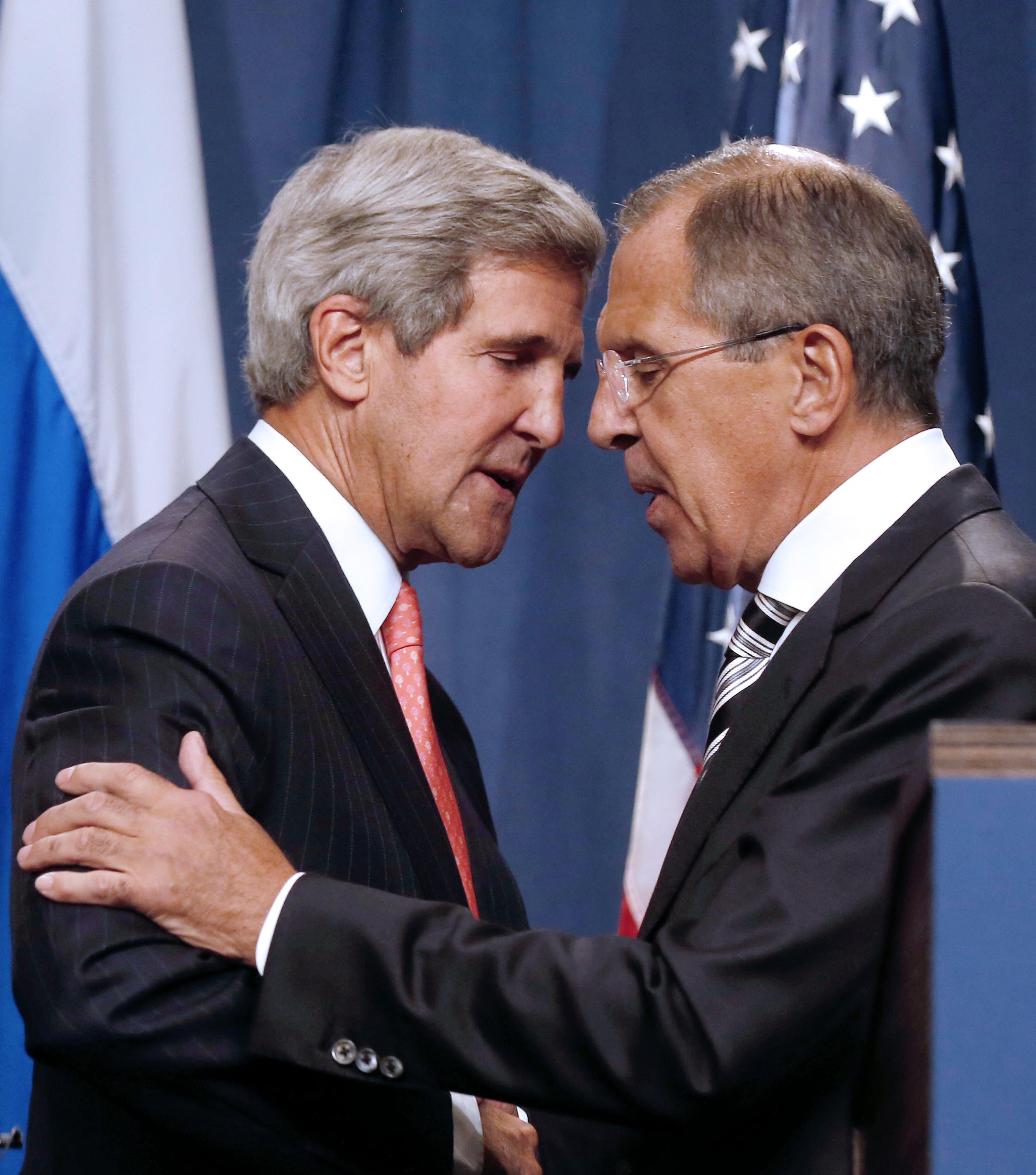Following three days of intense negotiations in Geneva, the United States and Russia reached an ambitious agreement that would see all of Syria’s chemical weapons put under international control and destroyed by the middle of next year. Secretary of State John Kerry recognized the agreement was “ambitious,” others call it unprecedented and incredibly difficult to fulfill. The United Nations will issue a resolution warning of possible consequences, including sanctions, if Syria fails to comply, notes the Washington Post. But White House officials had already said any U.N. resolution would likely not include authorization to use force against Syria if it fails to comply with the destruction of chemical weapons. What penalties the United Nations could impose are still to be determined, points out Reuters. But Kerry made it clear the United States would still reserve the right to attack. For now, Syria must give a “comprehensive list” of its chemical weapons within a week.
Whether it will be possible to even fulfill the agreement remains in question though with the New York Times calling the deal “one of the most challenging undertakings in the history of arms control.” One expert tells the paper that the deal Moscow and Washington sealed Saturday attempts to condense “what would probably be five or six years’ worth of work into a period of several months.” And that’s without considering the fact that it would have to be undertaken in the middle of an ongoing civil war.
Rebel leaders quickly implied they won’t go out of their way to make things easier for the international chemical weapons inspectors, saying they would facilitate safe passage but won’t actually stop fighting, reports the Associated Press. The rebels were quick to express their deep disappointment Saturday. “Let Kerry-Lavrov plan go to hell. We reject it and we will not protect the inspectors or let them enter Syria,” one rebel commander tells Reuters. The rebels say that Washington’s backing away from military strikes has emboldened Assad that “now believes that the whole international community can’t punish it, or stop it, so it will do it all,” as a rebel spokesman tells the Washington Post.
